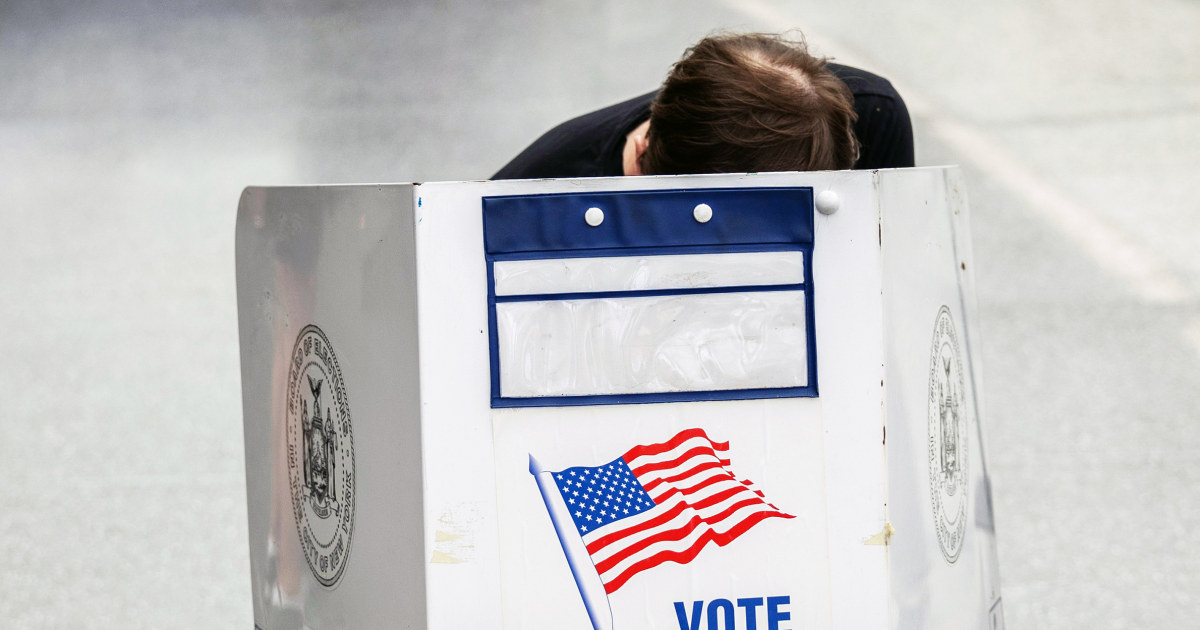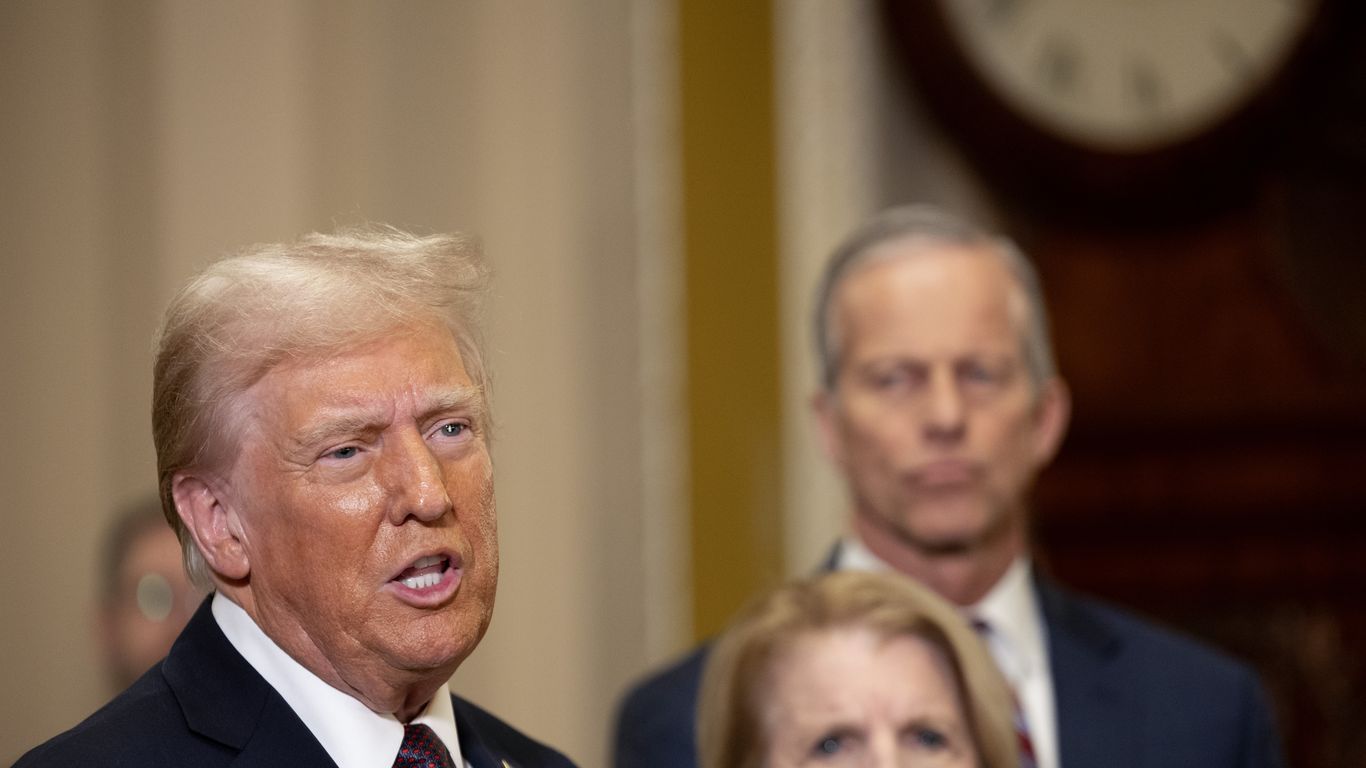Freedom Caucus Criticizes Senate's Tax Bill

Introduction
The Freedom Caucus, a group of conservative House Republicans, has launched a scathing attack on the Senate's "megabill" which aims to overhaul the nation's tax system. This three-page dissection was circulated on Wednesday as GOP leaders sought the hard-liners' support for the bill.
Background
The Senate's version of the tax bill has come under intense scrutiny, with concerns over its potential impact on the national debt. Similar to the House-passed version, the Senate's bill is expected to add trillions of dollars to the country's debt, according to projections released by the Congressional Budget Office (CBO).
Current Scenario
Despite the controversial "current policy baseline" accounting tactic, which has been used to calculate the bill's impact, Senate Republicans are pushing for a vote on the megabill as early as Monday. This comes after President Trump's call for the bill to be passed before July 4, a deadline that has faced numerous hurdles and snags along the way.
The Republicans, who control the House of Representatives, are also hoping to nudge the Trump administration's agenda towards passage, despite divisions within the party. With the bill's passage in the Senate being the last hurdle before it reaches the President's desk, the Freedom Caucus' attack on the bill is a significant development.
Conclusion
The tax bill, which aims to overhaul the country's tax system, has faced numerous challenges and hurdles along the way. While Senate Republicans are pushing for a vote, the Freedom Caucus' dissection of the megabill highlights the deep divisions within the party. As the vote-a-rama, or the final vote on the bill, is underway, the fate of the megabill and the nation's tax system remains uncertain.
About the Organizations Mentioned
Freedom Caucus
The Freedom Caucus is a **conservative group of lawmakers in the U.S. House of Representatives**, representing the most right-wing faction within the Republican Party. Established in January 2015 as an outgrowth of the 2009 Tea Party movement, the caucus emphasizes **fiscal conservatism, limited government spending, and strict immigration policies**, along with socially conservative positions on issues like LGBTQ rights and abortion[1][3][5]. The caucus is known for its **no-compromise, hardline approach to legislation and party leadership**, often prioritizing ideological purity over bipartisan cooperation. This stance was notably influential in the **resignation of House Speaker John Boehner in 2015**, demonstrating its capacity to disrupt established leadership and shape congressional dynamics[1]. Its members, roughly 40 in number, tend to be younger and less experienced than the typical House Republican but hold districts that lean strongly Republican[3]. Key achievements of the Freedom Caucus include pushing for government shutdowns to force spending cuts, championing the repeal of the Affordable Care Act (Obamacare), and supporting former President Donald Trump and the MAGA movement, further solidifying its role as a powerful faction within the GOP[1]. The caucus has also been instrumental in influencing House speaker elections, including opposing Kevin McCarthy’s bids, which highlights its sway over party governance[3]. Currently, the Freedom Caucus remains a **significant conservative force in the House**, continuing to challenge moderate Republicans and the status quo. It serves as a platform for conservative lawmakers who seek to govern strictly according to their campaign promises, often opposing compromises that dilute conservative principles[2][4]. Notable aspects of the Freedom Caucus include its strategic use of procedural tactics, its secretive membership roster, and its reputation for prioritizing ideological goals even at the cost of party unity or legislative gridlock[1][3]. For readers interested in business and technology news, the caucus’s influence on federal policies—such as
Senate
The **United States Senate** includes several key committees critical to business and technology policy, notably the *Senate Committee on Small Business and Entrepreneurship* and the *Senate Committee on Commerce, Science, and Transportation*. These committees play pivotal roles in shaping legislation that impacts small businesses, innovation, technology development, and commerce nationwide. The **Senate Committee on Small Business and Entrepreneurship** advocates for small businesses by overseeing the Small Business Administration (SBA), which provides capital access, education, technical assistance, and federal contracting opportunities to small enterprises. This committee’s historical role has been to ensure the vitality of small businesses, which are essential to the American economy. Recent efforts include bipartisan reforms targeting SBA program efficiency, fraud prevention related to pandemic aid, and support for entrepreneurship in underserved communities. They also focus on programs like the Small Business Innovation Research (SBIR) and Small Business Technology Transfer (STTR), which connect federal agencies with private entrepreneurs to accelerate research and development in critical tech areas, thereby maintaining U.S. technological leadership[1][4][5][8]. The **Senate Committee on Commerce, Science, and Transportation** is one of the largest Senate committees, overseeing broad sectors including consumer protection, economic development, manufacturing, trade, science, and transportation infrastructure. It addresses emerging technologies, environmental issues like climate change, and space exploration, both government-funded and private. This committee significantly influences national business practices, product safety, competitiveness, and innovation ecosystems, affecting industries from maritime to digital technology[2][7]. Notable recent activities include Senate hearings on Big Tech antitrust and competition policies, emphasizing the need to regulate dominant technology firms to foster innovation and protect consumers and workers. This aligns with broader legislative efforts addressing artificial intelligence and technological competitiveness in 2025[6][10]. In summary, the Senate’s organizational structure and committees serve as crucial instruments in shaping U.S. business and technology landscapes. Through oversight, legislation, and reform initiatives, they support small businesses, promote innovation
GOP
The **GOP**, or **Grand Old Party**, is the widely recognized nickname for the **Republican Party** of the United States, a major conservative political party founded in 1854. It originated from anti-slavery activists opposing the Kansas-Nebraska Act, uniting former Whigs and Free Soilers with a platform centered on halting the expansion of slavery. The party's early historic milestone was the election of Abraham Lincoln in 1860, which precipitated the Civil War; under Lincoln’s leadership, the GOP focused on preserving the Union and abolishing slavery[1][2][3]. Throughout its history, the Republican Party has evolved from its abolitionist roots to champion business interests, industrial growth, and economic policies favoring limited government intervention. In the late 19th and early 20th centuries, it promoted protective tariffs and infrastructure development. The party experienced fluctuating influence, losing ground during the New Deal era but regaining prominence with Dwight D. Eisenhower’s presidency in the 1950s, marked by moderate conservatism[1][2]. Today, the GOP advocates for reduced taxes, conservative social policies, limited government regulation, strong national defense, and states’ rights. It remains one of the two dominant forces in American politics, consistently shaping legislative agendas and national discourse[2]. The party is organized and led nationally by the **Republican National Committee (RNC)**, which manages fundraising, election strategies, and the party platform, coordinating efforts across states and counties under the leadership of a chairman[3][4]. Notably, the acronym "GOP" was popularized in the late 19th century and originally stood for "Grand Old Party," symbolizing the party's legacy in preserving the Union and championing liberty. It is now a common term in political commentary and media[3][5]. In recent years, the GOP has undergone significant membership changes in Congress and leadership adjustments, reflecting its dynamic role in U.S. politics as
Congressional Budget Office
The **Congressional Budget Office (CBO)** is a nonpartisan federal agency established in 1974 by the Congressional Budget Act to support Congress in budget and economic policy matters. Its core mission is to provide objective, impartial, and professional economic and budgetary analysis to help lawmakers make informed decisions about fiscal policy. The CBO serves as an independent alternative to the executive branch’s Office of Management and Budget, ensuring Congress has its own reliable data and projections[1][2][3][7]. CBO’s primary responsibilities include producing formal cost estimates for nearly every bill approved by congressional committees and publishing key reports such as the annual *Budget and Economic Outlook*. This flagship report offers baseline budgetary and economic projections over a 10-year horizon, assuming current laws remain unchanged. The agency also conducts analyses of the economic impacts of proposed federal spending and tax policies, aiding Congress in understanding long-term fiscal effects and budget deficits[1][3][5]. Since its inception, the CBO has become a critical institution in the U.S. budget process, recognized for its rigorous methodology and nonpartisan stance. It employs experts in economics and public policy who draw on a wide range of data, forecasting models, and external expert advice to maintain accuracy and credibility. The agency has adapted to the digital age by enhancing its publication and digital media divisions to better communicate its findings to both legislators and the public[3]. Currently, the CBO continues to provide vital analysis amid complex economic conditions, such as assessing the federal deficit, tax revenue changes, and spending trends. It remains strictly neutral, never making policy recommendations, but offering transparent methodologies that underpin its analyses[5][7]. For stakeholders in business and technology news, the CBO’s work is essential for understanding how fiscal decisions may influence economic growth, innovation funding, and federal investment priorities.
Republican Party
The **Republican Party**, also known as the **GOP (Grand Old Party)**, is one of the two major political parties in the United States, founded in 1854 primarily by anti-slavery activists opposing the Kansas-Nebraska Act and the expansion of slavery into U.S. territories[1][5]. It was formed from a coalition of former Whigs, Democrats, and Free Soil party members who shared opposition to slavery and a desire for a national political force promoting economic development and social order[2][5]. The party's early base included northern Protestants, businessmen, factory workers, professionals, and prosperous farmers. It strongly supported pro-business policies like the national banking system, the gold standard, railroads, and high tariffs[1][3]. Abraham Lincoln, the first Republican president elected in 1860, led the party through the Civil War, championing the abolition of slavery and the preservation of the Union. This solidified the GOP’s dominance in national politics for decades, especially in the North, while it remained weak in the South[1][5][6]. Historically, the Republican Party was instrumental in major social reforms, including the Emancipation Proclamation and the passage of the 13th, 14th, and 15th Amendments, which abolished slavery, guaranteed equal protection, and secured voting rights for African Americans, respectively[6]. The party also supported women's suffrage early on, backing the 19th Amendment[6]. In the 20th century, Republicans were associated with both conservative economic policies—favoring reduced taxes, limited government regulation, and individual economic freedom—and a strong national defense[7]. The party experienced ideological splits, notably in 1912 when Theodore Roosevelt led a progressive faction away from the conservative wing[1][5]. Today, the GOP continues to promote conservative social policies and states’ rights, opposing extensive federal intervention and advocating free-market principles[7]. For readers interested in business and technology,


















